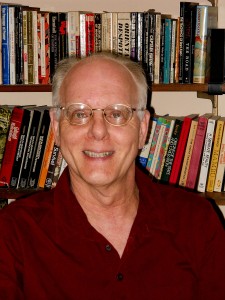Anthony Glascock is the coordinator of the anthropology program and a professor of anthropology.
The Triangle: What’s your story and how did you end up at Drexel?
Anthony Glascock: I’m an anthropologist who has, for the last 35 years, studied aging and old age. My first academic job was at the University of Wyoming, where I spent 13 years. I was treated very well at Wyoming, but my wife and I found Laramie a bit small, and we wanted to move to a large city. Barbara Hornum, who I knew because we had common research interests, suggested that I apply to be head of what was then the Department of Psychology and Sociology. I did, was hired and I started in July 1986.
TT: What are the most interesting and challenging parts about your current research?
AG: Although I am still a gerontologist, Drexel’s emphasis on solving real-world problems has dramatically influenced my research, shifting my emphasis from the abstract study of the treatment of the elderly to the development, implementation and use of innovative technologies to deliver health care to the elderly. I now use the knowledge that I have gained through working on projects in the United States, the United Kingdom, and the Netherlands to help others implement innovative technologies. Trying to get people to use new technologies is both the most gratifying and most challenging aspect of my research. However, just last week the head of the Ontario Telehomecare Strategy emailed me that my latest book “saved me months, if not years, of having to learn these complicated lessons firsthand,” which was especially gratifying.
TT: What’s the toughest question you were asked in a class, and how did you answer?
AG: If not the toughest, certainly the most disturbing question asked by a student was in a gerontology course. She asked, “It must be great knowing what comes about as you age?” Sure, knowing that I’m going to lose my hair, one pound of muscle will turn into one pound of fat every year after the age of forty, my brain will shrink 15 percent, and if I live long enough then I’ll become impaired and probably spend the last years of my life in an institution. Thanks for the question.
TT: Who or what is your greatest inspiration?
AG: Interestingly, I did not meet the person who inspired me the most until I was 25 and began teaching at the University of Wyoming, and we couldn’t have been more dissimilar. I grew up in downtown Kansas City, Mo.; he grew up on a ranch in Ten Sleep, Wyo. I went to Williams College right after high school; he went to the University of Wyoming in his thirties after a doctor told him that he could no longer undertake the rigors of ranching. He was a lifelong hunter; I fired a gun once at Boy Scout camp and never hunted anything ever. He was an archeologist and loved to dig in the dirt; I never want to be dirty. He only spoke when forced; I only stop talking when forced. And yet, George Frison inspired me by his work ethic. He worked continually — seven days a week — digging in the field, analyzing data or writing. He said to me during my first year at Wyoming that the state paid him to do what he loved, and he felt obligated to pay them back by “putting in a full day’s work every day.” This full day was usually 10-12 hours, but even so, “it’s sure a lot easier than riding fence in the snow.” I have tried to be like George ever since by putting in a full day’s work every day.
TT: When you were a kid, what did you want to be when you grew up?
AG: I never wanted to be anything in particular when I was growing up, except not poor — been there, done that. I’m just not good with goals. As an example, I only decided to become an anthropologist and attend graduate school while in Nairobi, Kenya, during the middle of my junior year at Williams. Even then, I made this decision not because I wanted to be an anthropologist but because I wanted to do ethnography, and I was told the only way to do ethnography was to be an anthropologist.
TT: When you’re not at Drexel or working on your research, what do you do for fun?
AG: When I’m not working, I’m usually riding my road bike — 100,000 miles in 20 years — reading poetry or non-narrative literature, or listening to music on my newly upgraded stereo system — no iPod for me. I also enjoy mountain biking, cross-county skiing and attending live music — Indigo Girls and Joan Baez, just last week.
TT: What are you most proud of?
AG: I’m most proud of my relationship with my wife, Judith. Anyone who knows me knows that I’m not the easiest person to deal with, let alone live with, and she has put up with me for 39 years. We have a fairly volatile relationship, but it has produced two wonderful daughters and two fantastic grandchildren. Although I claim that she would be bored with anyone else, I’m willing to accept that perhaps she would like a little less of what I view as excitement. She has a favorite pet name for me that I cannot use in this venue, but I’m sure that she only uses it out of love.
TT: What’s something that none of your students know about you?
AG: As for what one thing my students don’t know about me, they will just have to get through life without knowing it.
Triangle Talks is a weekly column that highlights individuals in the Drexel community.



